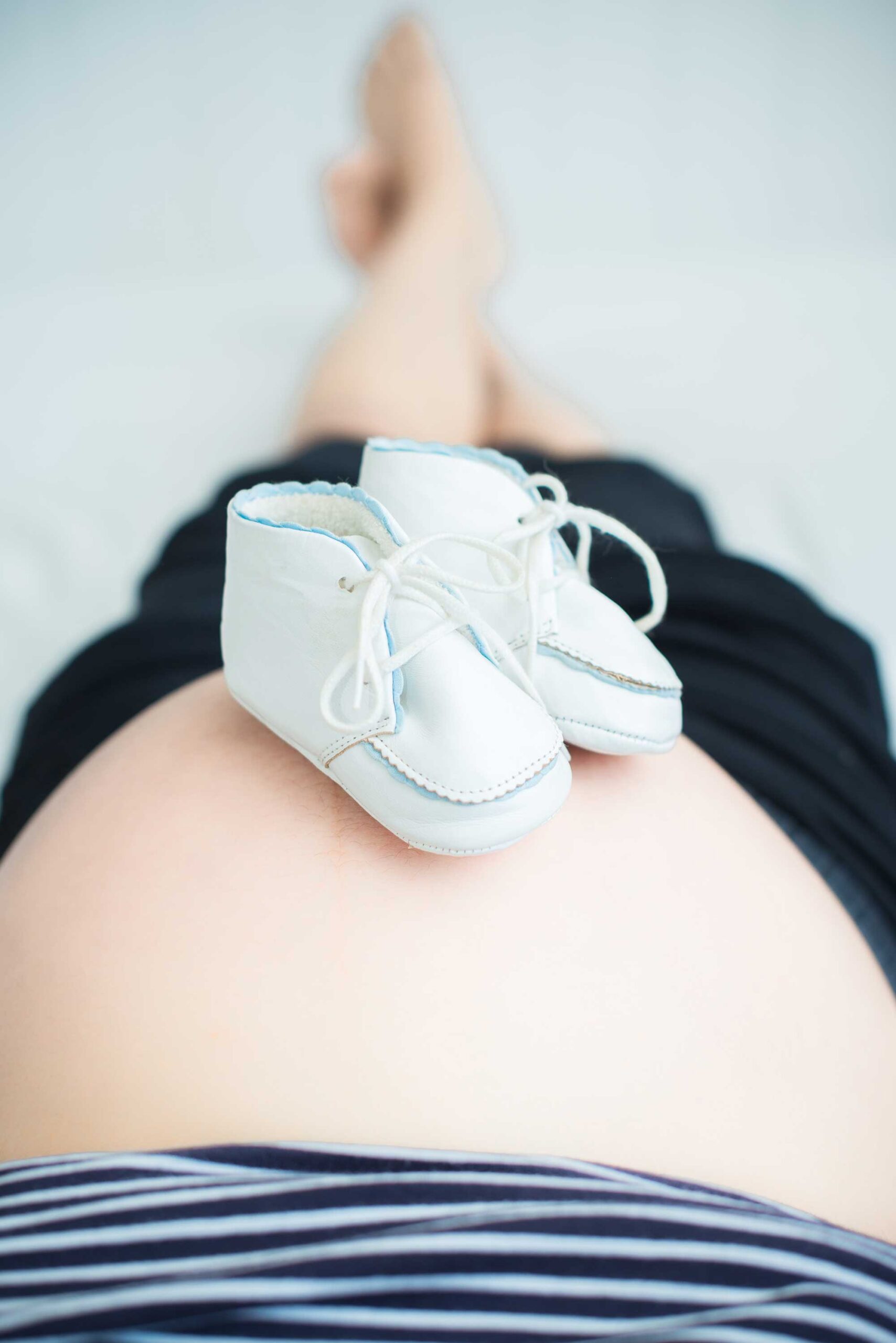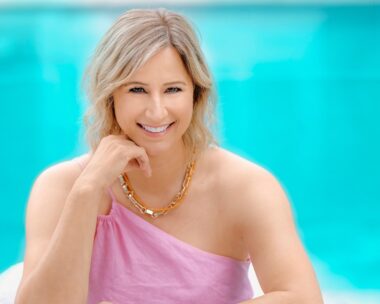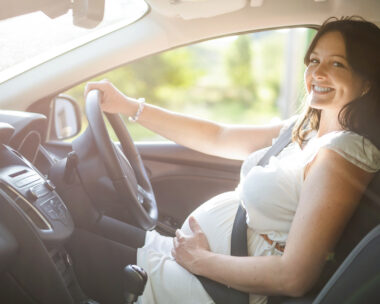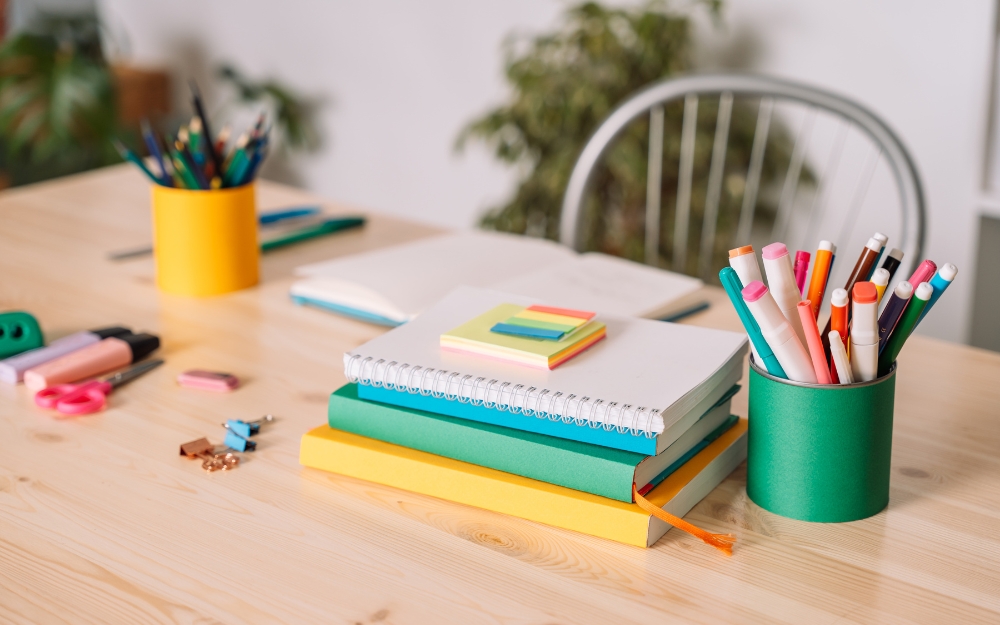It was an unexpected moment on morning TV when award-winning journalist Amanda Gillies broke down in tears. The veteran newsreader has maintained her composure when reporting on everything from the Bali bombings to Queensland’s deadly floods.
But when it came to a discussion on fertility on TV3’s AM Show, Amanda was overcome with emotion as she admitted she should have thought about having children earlier.
“I waited – I shouldn’t have,” she said, in a segment that instantly made headlines and has since had more than 60,000 views on Facebook alone.
“Career you’ll always come back to, children you can’t. I’m now 40 so it’s probably not a happening thing – and it’s a heartbreaking thing because as a woman, you feel like a failure.” And it’s a heartbreak that’s becoming increasingly common.
The recent NEXT Report of more than 1000 Kiwi women revealed almost one in five wish they’d had kids when they were younger – a figure that has steadily increased since we first conducted the survey in 2008.
And it seems the issue is particularly prominent in our biggest cities, with 42 per cent of those expressing regret at delaying motherhood living in Auckland. Fertility specialist Dr Mary Birdsall, chair of Fertility Associates, says it’s an issue she witnesses all too regularly.
“All day every day,” she reveals. “We meet many people who don’t achieve their dreams of having their desired family, and that’s purely based on running out of time.”
It’s no secret that with age, our fertility declines, so why are so many women delaying having kids?
Why are women waiting to have children?
It’s long been assumed the main reason modern women wait to start a family is because they want to first finish their education and establish a career.
Indeed, 58 per cent of women polled by NEXT are adamant it’s important a woman has a career outside the home. However, the latest research from the University of Oxford in the UK suggests it goes beyond that, and is actually genetic.
In findings published in Demography, analysts concluded that while for every year of education after the age of 12 the average woman postpones having kids by six months, decisions around reproduction are more directly impacted by upbringing.
According to lead author Dr Felix Tropf, “a woman’s fertility choices seem to be mostly influenced by her family background… families provide social and financial support and pass on genes affecting reproductive behaviour.”
Birdsall believes we should also look beyond the mother when considering why many parents have children later in life.
“It really irritates me when I see the women being blamed; it takes a couple to have a child, and often it’s the guy who has no idea that a woman’s time is limited,” she says.
A further issue is the clear lack of men in New Zealand for women to start a family with. Data from the Organisation for Economic Co-operation and Development (OECD) show we have 91 men for every 100 women in the 25-49 age bracket, making our ‘man-drought’ the most acute in the world.

The rise of the older mum
But despite waiting to start families, it doesn’t mean we’re unsuccessful. According to the Ministry of Health’s most recent Report on Maternity, 21 per cent of all births in 2015 were to women over the age of 35.
The National Women’s Annual Clinical Report shows a steady increase in the number of women over 36 years old giving birth at the National Women’s Hospital. In 2016, 23.1 per cent of all births were to mothers aged 36 and older, compared to 12.8 per cent to women under the age of 25. Since 2012 the number of mums over 40 has outweighed the number under the age of 20.
While Parents Centre, New Zealand’s largest provider of childbirth and parent education, has experienced a rise in the average age of women using their services, according to CEO Viv Gurrey, it hasn’t changed the primary needs of a mother.
“All mums require support, and age is irrespective,” she says. In her experience, the biggest challenge with being an ‘older’ mum was finding other women to relate to.
“I went from the boardroom to the labour ward – and back relatively quickly afterwards,” recalls Viv, who had her second child at 36 when she was CEO of software company SAP NZ. “For me it was about relating to other mums – who at that time I possibly had little in common with.”
Her advice for those who wish they’d had their kids younger is to put it behind them and focus instead on the journey.
“There will always be those who regret making certain choices in life, but don’t get hung up on age and demographics – leave that to the statisticians – it’s your choice,” she says. “All life changes bring challenges, but it’s how we view them that counts.”
Of course, society can be a big influencer. For all that the likes of Janet Jackson, Geena Davis and Holly Hunter have had kids nearer 50 than 40 – and high-profile Kiwis Jenny-May Clarkson, Lee-Anne Wann and Toni Marsh embarked on motherhood after turning 40, judgement can be rife.
Viv had a pregnancy at 43, which sadly resulted in miscarriage at 24 weeks, but the reactions of others were far from encouraging. “‘Was it a mistake?’ was a common question,” she says. Some even suggested it was ‘for the best’. “It’s still a common view; we’re quick to judge as a society,” she says.
And we shouldn’t be. Research published in The International Journal of Epidemiology claims kids born to older mums are likely to be more intelligent than those born to younger women. This follows previous studies, showing they’re less likely to have accidents or need hospital care.
Overridingly, the NEXT Report shows whether it happens at 46 or 16, motherhood is a dream worth chasing. A massive 85 per cent of women said becoming a mother was the highlight of their life, and 95 per cent believe children enrich their lives. And if advances in medicine continue, it may give hope to older women.
Birdsall is confident the breakthrough she and her team have been waiting for – transforming older women’s eggs into healthy young eggs – will happen within the next decade. “I can’t wait; it will make my clinic much happier!” she says.
Dr Mary Birdsall’s advice to women who hope to one day start a family
1 Do the Anti-Mullerian Hormone (AMH) test – which establishes how many eggs a woman has left before menopause. Then you can make decisions and take control of your own future – as opposed to running out of options.
2 Get your partner on board – sit down and have a conversation about how many children you want. If you want two or three, starting at 38 means you may not get there.
3 Encourage your man to get checked. If you knew he had a serious issue you probably wouldn’t spend a year trying before you went to see a fertility specialist – because that’s a year you’re never going to get back.
The challenges of getting pregnant
Fertilising an egg is harder than the scaremongers in sex ed would have you believe. Fertility complications aside, here are the chances for each month trying…
20-year-old
25% chance of getting pregnant for each month she actively tries
30-year-old
22% chance
35-year-old
16% chance
40-year-old
6% chance
44-year-old
1% chance




